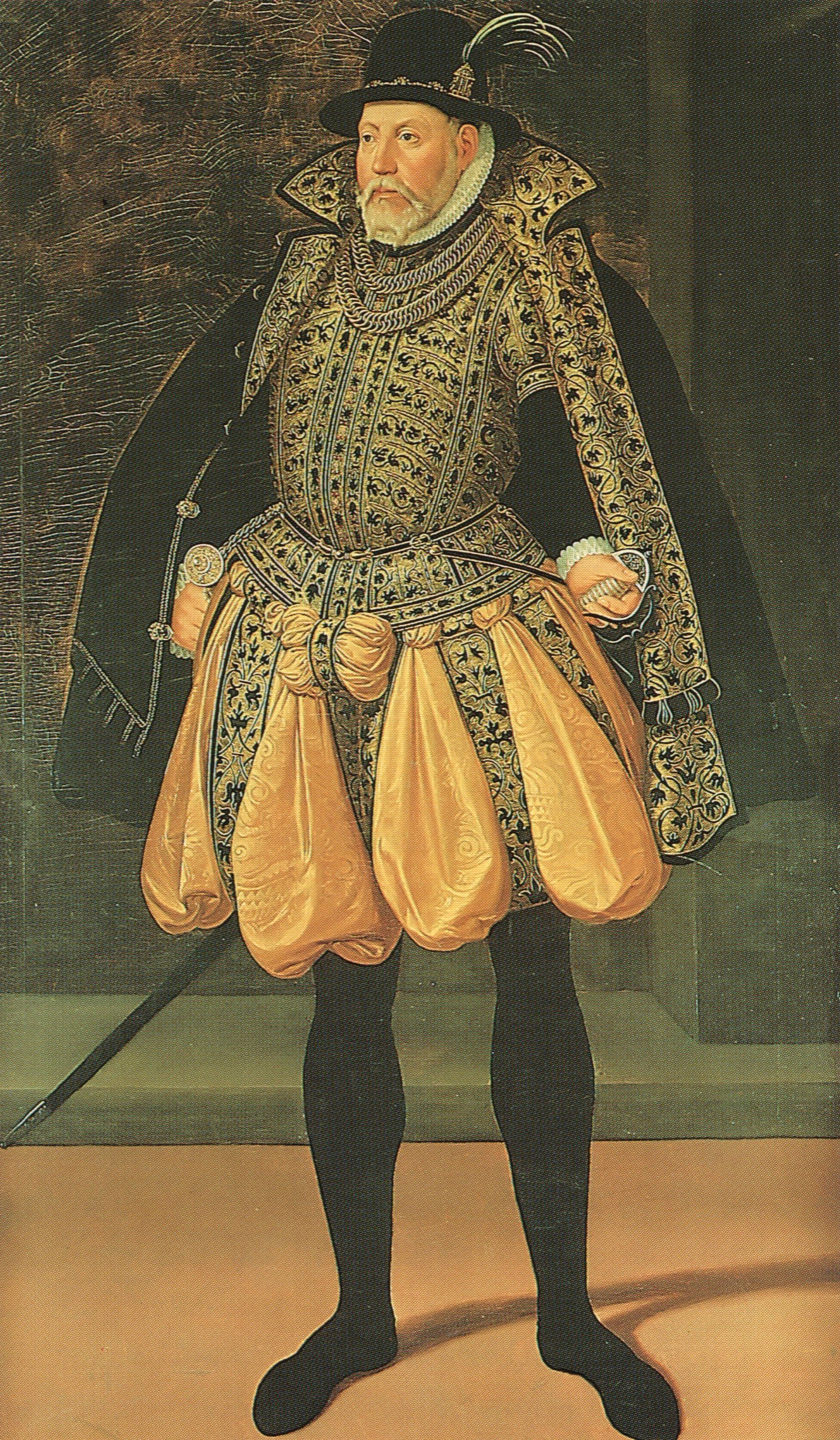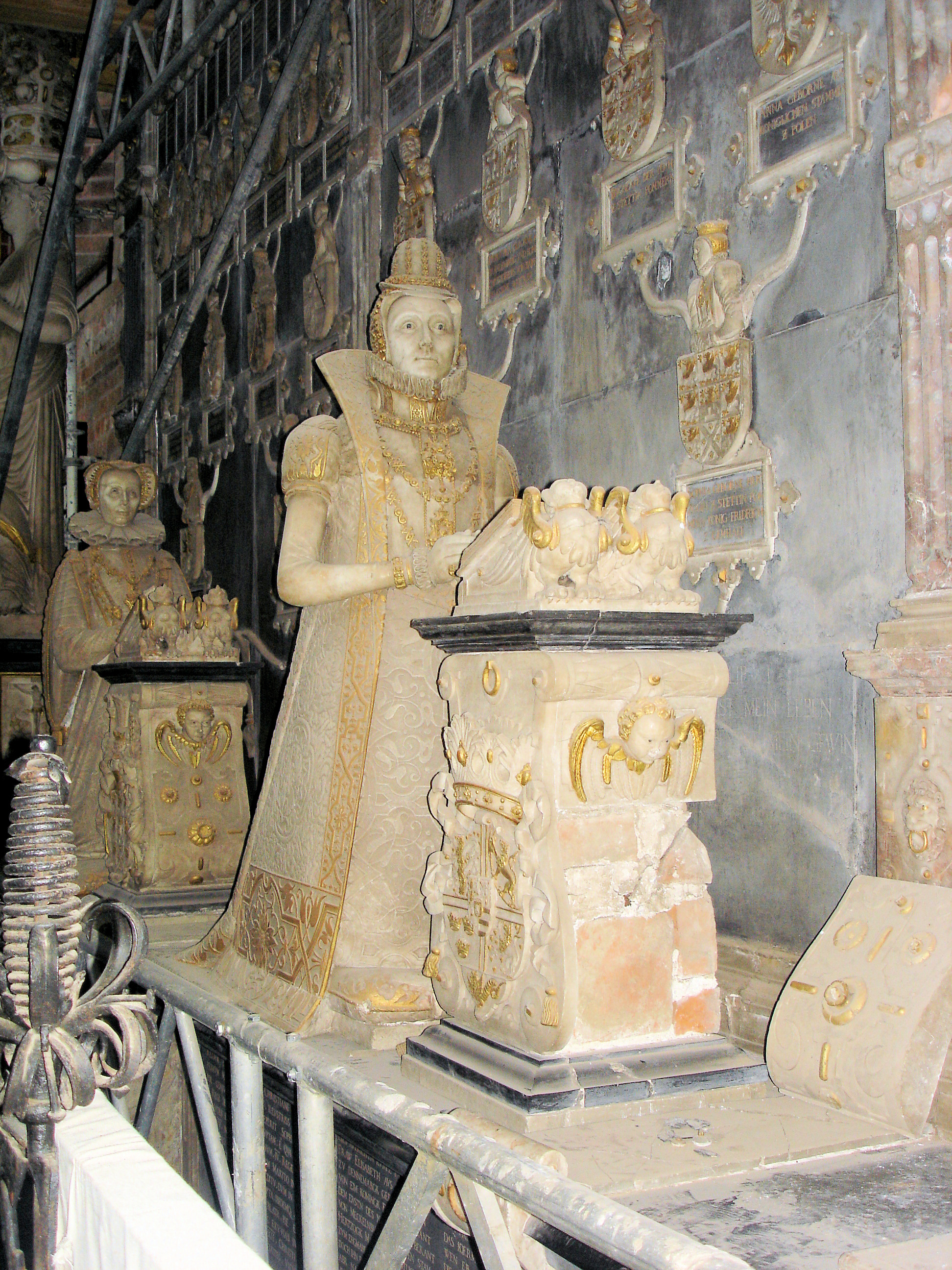1. Overview

Duke Ulrich III of Mecklenburg-Güstrow (Ulrich III. von Mecklenburg-GüstrowUlrich III. of Mecklenburg-GüstrowGerman, March 5, 1527 - March 14, 1603) was a significant ruler of the House of Mecklenburg, serving as Duke of Mecklenburg-Güstrow from 1555-1603 and Administrator of the Prince-Bishopric of Schwerin as Ulrich I from 1550 until his death. An enlightened and modern prince, Ulrich was renowned for his astute financial management, which allowed him to maintain his duchy almost debt-free and amass a substantial personal fortune. His reign was marked by a commitment to public welfare, strict yet fair governance, and a cautious foreign policy that prioritized peace and mediation over conflict. A devout Lutheran, he fostered intellectual discourse, engaging with prominent scholars of his era and patronizing arts and sciences. His strategic dynastic marriages also extended his influence across European royal houses, cementing his legacy as one of the most effective and prudent leaders of his time.
2. Early Life and Education
Ulrich III's formative years laid the groundwork for his future enlightened rule, encompassing a noble birth, a disciplined education, and early administrative experience.
2.1. Birth and Childhood
Ulrich was born on March 5, 1527, in Schwerin, a city in the modern-day German state of Mecklenburg-Vorpommern. He was the third son of Albrecht VII, Duke of Mecklenburg, and Anna of Brandenburg. His father's involvement in the Count's War had left the Duchy of Mecklenburg heavily in debt, a situation that significantly influenced Ulrich's later focus on financial prudence. Though he was initially entrusted with co-governance of the debt-ridden duchy by the Emperor alongside his older brother Georg (who died in 1552), Ulrich initially refrained from actively participating in the administration.
2.2. Education and Early Career
At the age of 12, Ulrich embarked on his formal education at the Bavarian court. In 1539, he enrolled at Ingolstadt University, where he studied theology and law alongside Philips Rudolf zu Helben-Schlieben. Among his fellow students was Albrecht V, who was of a similar age. After the death of his father, Ulrich established his residence in Bützow. In 1550, he succeeded his cousin, Duke Magnus III of Mecklenburg-Schwerin, as the Lutheran Administrator of the Prince-Bishopric of Schwerin. His election, which occurred on March 26, 1550, at the Dominican monastery in Wismar, was unanimous despite threats from another candidate, Heinrich Georg. The following day, Ulrich was formally installed as administrator by the Bishop's assistant, Magnus Haraldson.
Upon the death of his uncle, Duke Henry V, a fierce inheritance dispute erupted. Ulrich asserted his right to participate in the governance of the duchy, as his brother, John Albert I, had done little to alleviate the accumulated debts and had instead exacerbated them through participation in the Princes' War of 1552 (following the Schmalkaldic War) and extensive patronage of arts and sciences. The dispute was finally resolved in 1556 by the "Ruppiner dictum" of Joachim II, Elector of Brandenburg.
3. Reign
Ulrich III's reign as Duke of Mecklenburg-Güstrow was characterized by strategic territorial management, sound financial administration, and a deep commitment to intellectual and cultural development.
3.1. Succession and Territorial Management
On February 17, 1555, Ulrich succeeded his brother, John Albert I, as co-ruler of the partitioned Duchy of Mecklenburg. In 1556, while maintaining a common state government with his brother, Ulrich received the eastern part of Mecklenburg, establishing his residence in Güstrow, while John Albert I governed the western part from Schwerin. This arrangement involved an exchange of half of Schwerin for half of Güstrow, resulting in Ulrich residing exclusively in Güstrow. Furthermore, several secularized monasteries came under his administration, including Eldena, Neukloster, Dargun, Broda, and half of Dobberan. The division of the territories was designed to ensure both parts were of roughly equal value, approximately 1.70 M guilders each. This chessboard-like distribution necessitated continued joint governance between the ducal brothers.
Following his brother's death in 1576, Ulrich assumed guardianship of John Albert I's offspring, including his nephew and successor in Güstrow, John VII, from 1576 to 1585, and subsequently his grandson, Adolf Frederick I, until 1603. During this period, Ulrich also secured additional territories as collateral due to the Schwerin house's substantial debts, acquiring Bukow, Neukalen, Ivenack, and half of Vredenhagen.
3.2. Governance and Financial Administration
Ulrich established Güstrow Castle as his principal residence, transforming it into a magnificent seat of power. He also maintained other subsidiary residences, including Stargard Castle, Neubrandenburg Palace, Dargun Castle, Dobberan Castle, and Bützow Castle. Ulrich's governance was marked by exceptional financial acumen. He successfully managed his half of the duchy, keeping it almost entirely debt-free. Upon his death, he left behind a considerable fortune of approximately 200.00 K guilders. His cool, thoughtful, and diligent character greatly contributed to his success as an administrator. In 1582, he undertook a significant journey to the Imperial Diet in Augsburg as the last Duke of Mecklenburg to do so, accompanied by a large retinue.
3.3. Patronage and Intellectual Pursuits
Ulrich embodied the ideal of an educated and modern prince, establishing himself as one of the most influential figures within the Mecklenburg dynasty. He actively engaged in the scientific discourse of his era, maintaining exchanges with renowned scholars such as the astronomer Tycho Brahe and the theologian David Chytraeus. He also corresponded with prominent humanists like Heinrich Rantzau and Johannes Caselius. In 1594, demonstrating his leadership beyond his duchy, Ulrich, as the Chief of the Lower Saxon Circle, organized military and financial assistance against the looming Turkish threat. For a long period, he was a central figure in the Imperial Council.
4. Policies and Diplomacy
Ulrich III's policies were deeply rooted in his Lutheran faith, focusing on the well-being of his subjects and maintaining peace through cautious diplomacy and mediation.
4.1. Internal Governance and Church Affairs
Ulrich placed a strong emphasis on the public welfare, finding guidance in Martin Luther's treatise "On Temporal Authority," which advised rulers to serve the common good as if it were their own. He believed that a state not governed in such a manner would suffer divine retribution in the form of wars, fires, crop failures, and famines. To protect Mecklenburg from such calamities, Ulrich did not merely issue decrees for church, judicial, and administrative reforms but rigorously and persistently ensured their implementation. His deep commitment to Lutheran state theory explains why he consistently prioritized the duchy's interests, personally resolved numerous legal disputes, and spent countless hours daily consulting with his chancellor and other legal experts on various lawsuits.
Despite his diligent oversight, Ulrich could not entirely mitigate the impact of the Little Ice Age's climatic changes. Starting from the 1570s, Mecklenburg experienced increasing crop failures, most notably the famine of 1597-1598. Ulrich interpreted these events as divine punishments, motivating him to further improve governance within his territory. A significant and enduring legacy of his reign was the revised church regulations, published shortly before his death, which remained in effect until the end of the monarchy.
4.2. Foreign Policy and Mediation Efforts
Ulrich's foreign policy was notably cautious, and he avoided engaging in any wars throughout his entire reign. He notably did not participate in the Schmalkaldic War or the 1552 expedition of the Princes' War, deeming the chances of victory in such religious conflicts to be low. Although a devout Lutheran, he was not a fanatic and disliked all forms of religious extremism, believing his doctrine was firmly established by the Bible. He sought to confine doctrinal disputes to the universities, allowing them to be forums for debate, while in the churches of his duchy, established scientific views prevailed.
Under the leadership of his cousin, Augustus, Elector of Saxony, Ulrich staunchly supported the imperial-loyal Lutherans. He endorsed the movement for the Formula of Concord in 1577 and the Book of Concord in 1580, signing both as a guardian for his nephews, John VII and Sigismund August. He viewed these documents as tools for unity, not division.
Ulrich's adherence to the law also made him a frequent and respected mediator in various disputes among rulers. He had excellent relations with many, including Frederick II of Denmark and his brother-in-law, Duke John Adolf of Holstein-Gottorp, for whom he served as a mediator. He also mediated between Augustus of Saxony, Frederick II of Denmark, Hans of Schleswig-Holstein-Sonderburg, and Adolf of Schleswig-Holstein-Gottorp. In 1588, Ulrich gained further renown by succeeding his brother-in-law, Adolf of Schleswig-Holstein-Gottorp, as the Colonel of the Lower Saxon Circle.
5. Personal Life
Ulrich III's personal life revolved around his two marriages, which established crucial dynastic connections to other European royal families.
5.1. Marriages and Issue
Ulrich's first marriage took place on February 15, 1556, to Elizabeth of Denmark. She was the widow of his cousin, Magnus III, and a daughter of King Frederick I of Denmark. Notably, Elizabeth was a first cousin, twice removed, of Ulrich's maternal grandmother, Elizabeth of Denmark.

From his first marriage to Elizabeth, Ulrich had one daughter, Sophie. Sophie married King Frederick II of Denmark, thereby making Ulrich a grandfather to Christian IV of Denmark. Through Christian IV, Ulrich also became the great-grandfather of Charles I of England. Sophie's son, Ulrik of Denmark (1578-1624), named after his grandfather, succeeded Ulrich as the Administrator of the Prince-Bishopric of Schwerin. Interestingly, Christian IV's own son was also named Ulrik and became Ulrich III as Administrator of Schwerin, continuing the ducal family's association with the see.
Ulrich's second marriage was to Anna of Pomerania, daughter of Philip I and Maria of Saxony. This marriage, however, produced no children.
6. Death
Ulrich III died on March 14, 1603, in Güstrow. One month after his death, on April 14, he was interred in the crypt of Güstrow Cathedral following the most splendid funeral Güstrow had ever witnessed. The ceremony was attended by numerous noble lords and common people, and the funeral sermon was delivered by Dr. Lucas Backmeister. His tomb monument was created by Philip Brandin and completed by Klaus Midow.
As noted by Vicke Schorler in his Rostocker Chronik 1584-1625: "On March 14, 1603, the most praiseworthy Prince and Lord, Duke Ulrich of Mecklenburg, died in Güstrow. And on April 14, the Duke's body was buried in a tin coffin in the crypt with a large funeral and many noble lords and common people gathered. The funeral sermon was held by Dr. Lucas Backmeister."
7. Legacy and Historical Evaluation
Ulrich III's reign left an indelible mark on Mecklenburg and beyond, solidifying his reputation as a judicious and influential ruler.
7.1. Contributions and Positive Appraisal
Ulrich III is widely regarded as one of the most significant and accomplished rulers of the Mecklenburg dynasty. His reign is characterized by profound wisdom and effective leadership. His calm, thoughtful, and diligent nature greatly contributed to his ability to govern effectively and secure the financial stability of his duchy. He successfully guided Mecklenburg-Güstrow towards prosperity, leaving it in a far better state than he inherited it, primarily due to his meticulous financial management and avoidance of conflict. His contributions extended beyond mere administration; his patronage of intellectual pursuits and active engagement in contemporary scientific and humanist discourse marked him as a truly modern and enlightened prince.
7.2. Impact on Royal Houses
Ulrich's dynastic strategy, particularly through his daughter Sophie, had a far-reaching impact on several major European royal houses. His daughter's marriage to King Frederick II made him the grandfather of Christian IV of Denmark, one of Denmark's most notable monarchs. Furthermore, through Christian IV, Ulrich became the great-grandfather of Charles I of England, forging a direct genealogical link to the British royal family.
His granddaughter, Anne of Denmark, married James VI of Scotland. In 1598, when James VI was seeking to secure the throne of England, he sent ambassadors to his wife's family and allies to discuss his claim and garner support against Spanish contenders. Ulrich responded with a letter of cautious support on August 20, advising that Elizabeth I should name James as her successor. While his pledge of military assistance was lukewarm, his measured counsel demonstrated his influential position among European rulers and his commitment to cautious, diplomatic approaches in dynastic affairs.